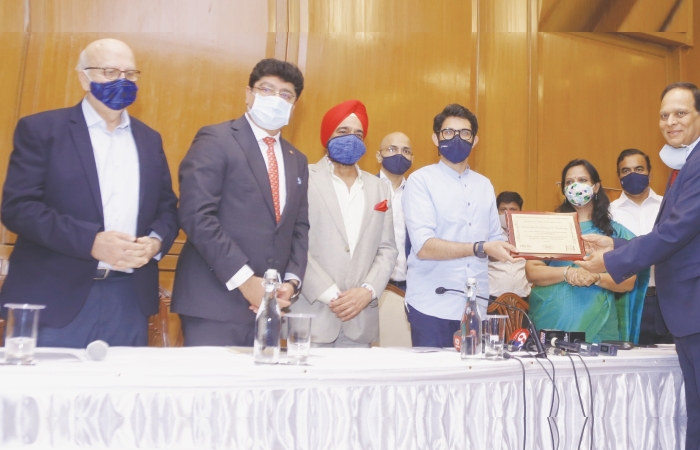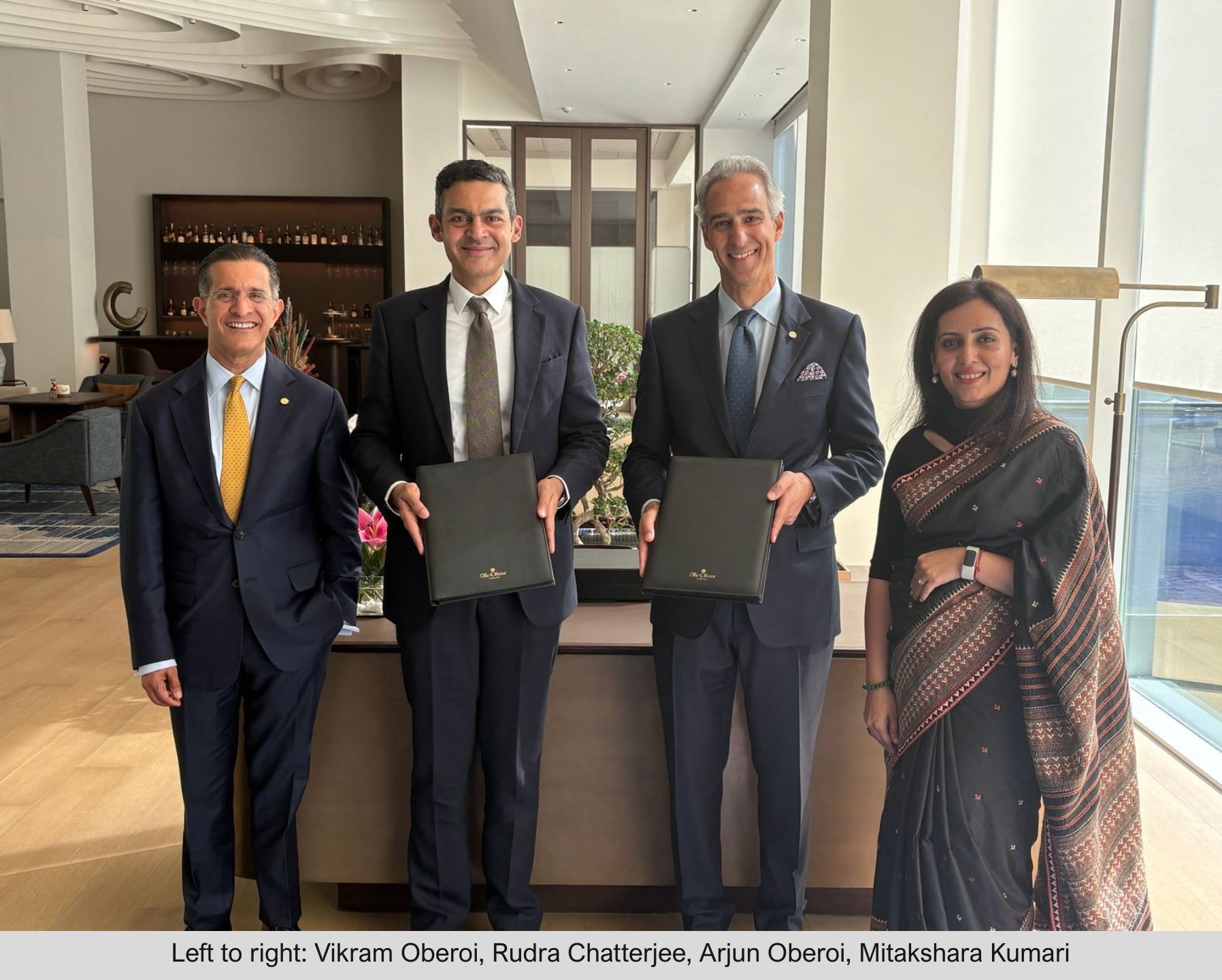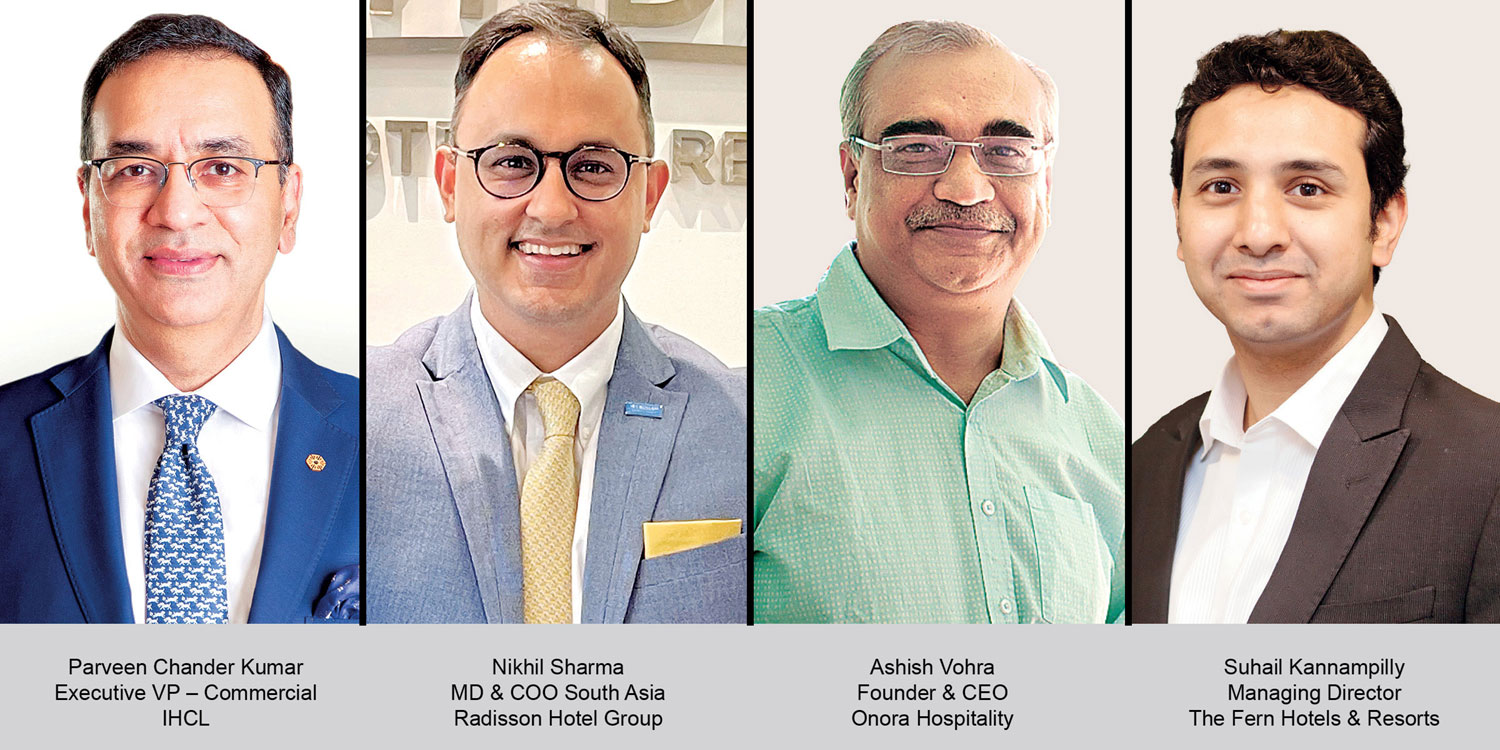The Maharashtra hospitality sector is thankful for the industry status effective April 2021. But what about making finance available at a lower rate of interest with a longer gestation period, hoteliers ask.
Hazel Jain
In an event held in Mumbai recently, the Federation of Hotel & Restaurant Associations of India (FHRAI) along with its western India regional association HRAWI felicitated State Tourism Minister Aaditya Thackeray for making Maharashtra the first and the only state to award its hospitality sector the industry status. Also present at the occasion were Valsa Nair, Principal Secretary, Tourism & Excise, Government of Maharashtra. Effective April 1, 2021, Maharashtra’s hospitality industry will be levied tariffs and duties on electricity, water, property, development and non-agricultural taxes at industrial rates. Gurbaxish Singh Kohli, Vice President, FHRAI, says, “The biggest win for the sector was the government’s announcement of according industry status to our sector which had remained a promise on paper for over 20 years. Maharashtra has set the benchmark for other states to follow.”
Thackeray also spoke about the reduction of licences and enabling ease of doing business in the state. At the function, he said quite a few reforms will be rolled out soon. “Post COVID, Maharashtra government intends to allow restaurants 24×7 operations in Mumbai,” announced the Minister. Referring to the Union Budget, he had earlier tweeted that there is nothing for tourism “neither in the budget, nor in the `20 lakh crore package announced earlier.”
Last year, the Maharashtra government brought down the number of licences from 70 to 10, and 70 separate application forms were reduced to just eight. Recently, the government also agreed to waive off the excise licence fee on pro-rata basis along with the roll-back of the 15 per cent annual fee increase for the year 2020. The new policy also replaced the need for obtaining NOCs from various departments with self-certification by establishments.
The industry reacts
While everyone has applauded the benefits, especially to operating costs for hotels, there were some misses that some pointed out. According to Nandivardhan Jain, Founder & CEO, Noesis Capital Advisors, while the industry status will help hotels lower their operating costs, the availability of finance and the increased gestation period has still not been considered. “The industry needs finance available at a lower rate of interest with a longer gestation period. Hotel assets being capital intensive, the loan tenure required is around 15-20 years which currently is between 8-10 years, making investments in the asset class restricted to only a limited people and a high proportion of equity needs to be infused in the project to make it viable. It is a long-awaited demand that the asset owners are seeking from the government. It should be taken into consideration to ensure we have more branded and quality assets in the country,” he explains.
Echoing similar sentiments is Satyen Jain, CEO of the Pride Group of Hotels. He says, “We have asked for the industry and infrastructure status as hospitality is a capital-intensive industry and it cannot survive on a high rate of interest. With this status, the hospitality sector will be entitled to receive several benefits and concessions, including longer loan repayment tenure and lower borrowing rates, which will help in attracting substantial fresh investments and will go a long way in improving the health of the sector, which is currently struggling due to the pandemic. But, if the status is provided without any benefits then it will be meaningless.”
Meanwhile, according to Pushpendra Bansal, COO, Lords Hotels & Resorts, the industry status approval is a landmark moment for hotel industry. “It will let hotels avail benefits, including rebates in electricity charges as well as water and property taxes. It will also give our brand the encouragement to further expand in tier-II and tier-III cities, too. We hope other states also accord this prestigious status,” he says.
Underlining the many cost benefits, however, Sandeep Talaulicar, Managing Director, Jakson Hospitality, says, “We will avail of four big cost advantages with this. The biggest benefit will be in electricity tariff. At present, there are three categories of electricity tariffs in Maharashtra. We will be also covered under the industrial rate category for water consumption. The prices will be published in the new Central Budget in February. It will also have a positive impact on property taxes. Again, the state budget will define the new rates shortly. Lastly, tourism on the whole will benefit from the MSME policy. We will also avail of other MSME subsidies in the policy.”
Summing up the industry sentiments, Manav Thadani, Founder Chairman, Hotelivate, adds, “My view is that every policy has something in it that is discomforting to a few and therefore it’s difficult to get everyone on board. Overall, however, we need other states to emulate Maharashtra.”
 TravTalk India Online Magazine
TravTalk India Online Magazine





